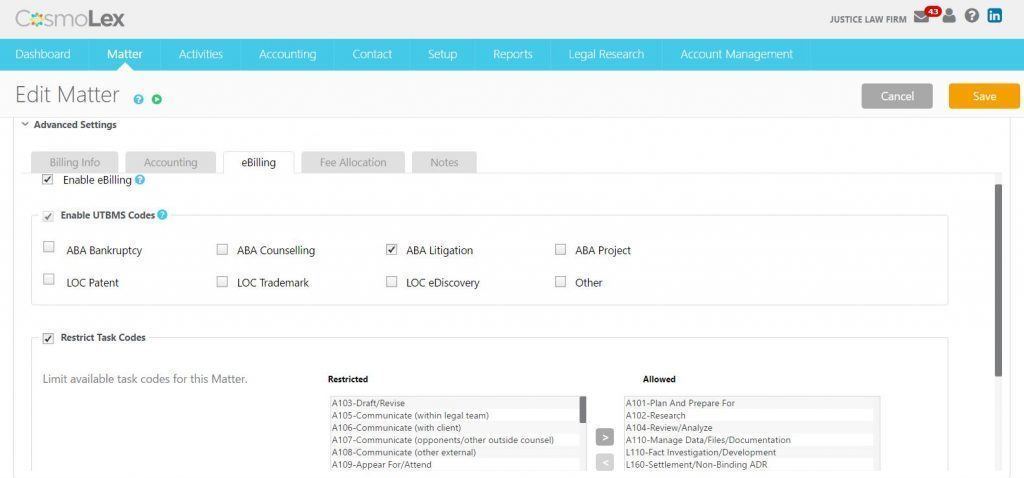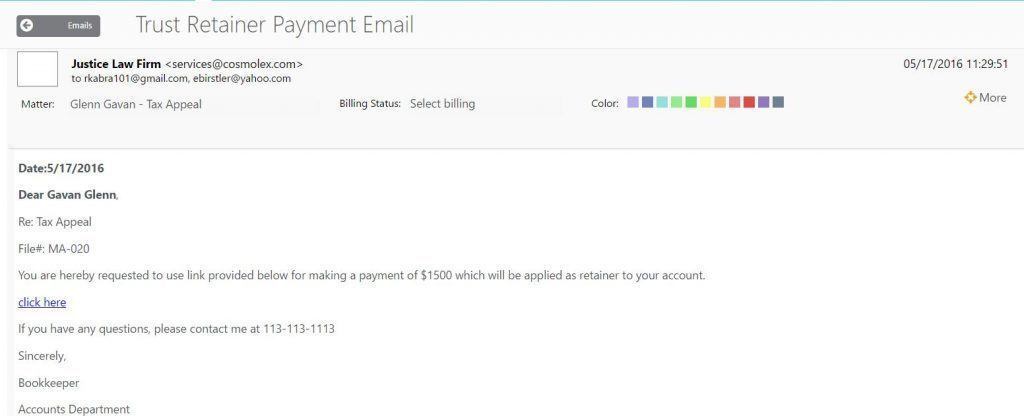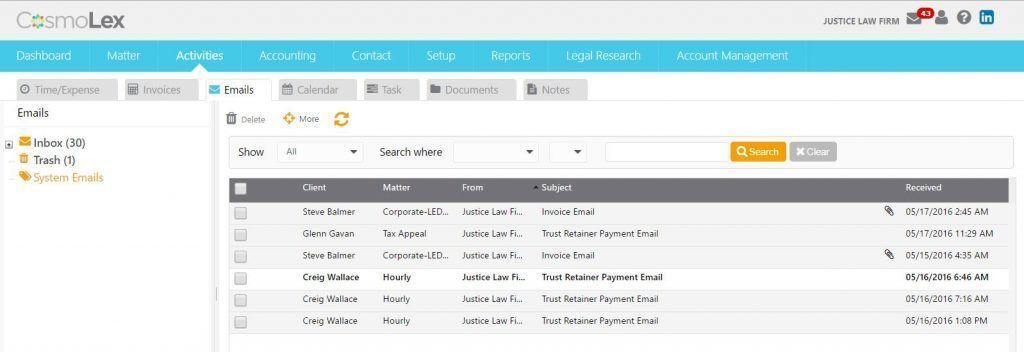
A firm can choose to enable UTBMS code sets and set which codes to allow or restrict.
The cloud practice management platform CosmoLex today rolled out a set of upgrades designed to extend its suitability to larger law firms. The upgrades include the incorporation of LEDES 1998B billing codes and ABA UTBMS task management codes, the ability to distribute income among lawyers based on their roles, online trust retainer collection, automatic email logging, and the ability to add labels to events, tasks, emails and notes.
CEO Rick Kabra told me last week that ever since CosmoLex added general-ledger accounting last year, he has seen an increase in larger firms moving to CosmoLex from legacy systems. (For Kabra, “larger”means firms of 10 or more attorneys. Although there is no limit to the size of firm his platform can accommodate, he said, the largest customer currently is a firm with 150 seats.)
Many of those larger firms represent corporate clients and do electronic billing. For them, LEDES — the Legal Electronic Data Exchange Standard — is essential. Many also use UTBMS, the Uniform Task Based Management System used as the American Bar Association standard to classify the legal services performed.
With this upgrade, CosmoLex users will be able to add or restrict LEDES codes both at the matter level and firmwide. (It cannot be done on a client-by-client basis.) Once LEDES codes are added or restricted, users see only those codes. CosmoLex now also supports use of the UTBMS codes, either in conjunction with electronic billing or as standalone codes. These also can be restricted to only the ones used for the particular matter.

Firms can now allocate income among lawyers.
A second feature rolling out today is income distribution. This allows a firm to customize the formulas by which collected fee income is to be distributed among partners. The firm can set the percentages that will be allocated to the originating attorney, the responsible attorney and to others who billed time. Firms can now create a Collected Fee Income Allocation Report to be used for tracking productivity and making fee allocations.
“This has been a top request from our midsized customers,” Kabra said. “Once you have multiple partners, you need to allocate how you pay them. Lawyer A might have brought in the matter but Lawyer B might be doing the work.”

A request to a client to pay a trust deposit by credit card.
Also announced today is online trust retainer collection. Last August, CosmoLex announced its integration with LawPay for taking bill payments by credit card. Now this integration is expanding to include credit card payments to fund client retainers.
Now within the CosmoLex platform, an attorney can request payment by a client of a specific trust amount. The client receives an email requesting the payment. A link in the email takes the client to the payment interface. The client cannot change the amount to be paid. Once the payment is made, it is recorded in CosmoLex and the deposit is made to the trust account.
This feature requires a separate account with LawPay. For trust account payments, LawPay does not take its fee from the trust — the full amount paid by the client is deposited into the trust account. Instead, LawPay takes its fee from the firm’s business account.

CosmoLex now provides a log of system email communications.
Another feature announced today is system email communication logs. Now, all emails sent from CosmoLex (such as invoices, reminder notices, that trust-payment request we just discussed above, etc.) are automatically recorded to a log and tagged by matter. This provides firms with a complete record of its communication history in case there is every any uncertainty, dispute or audit.
The final feature unveiled today is categorization. Now, users can add user-defined labels or tags to items such as events, tasks, emails and notes within each matter. In this way, you can see all tasks associated with a particular label, for example. You cannot, however, universally see all items associated with the same label.
 Robert Ambrogi Blog
Robert Ambrogi Blog